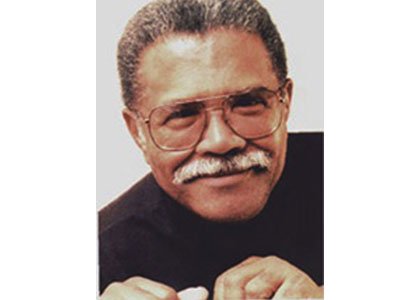Louis S. Diggs has spent nearly a lifetime helping to preserve African-American history in Baltimore County.
At 83, Diggs concedes that age may have slowed him just a bit, but it hasn’t stopped his ongoing research as he continues to dig for more valuable roots.
“Even though age is catching up with me, I can’t stop digging up our history here in Baltimore County. Deep down, I feel God is keeping me here for a reason,” Diggs said. And, his work hasn’t gone unnoticed.
On Thursday, February 18, 2016, Baltimore County Executive Kevin Kamenetz announced a new Louis S. Diggs Award to honor notable African-Americans from around the county.
Kamenetz says the award will be presented each year during Black History Month and this year’s recipients are Audrey Simmons and Ray Banks, who together brought to fruition the Hubert V. Simmons Museum for Negro League Baseball, located inside the Owings Mills Library.
“No one has done more to preserve and promote African-American history in Baltimore County than Louis Diggs,” Kamenetz said. “An award such as this is long overdue, and we in Baltimore County are so fortunate to have this notable expert on African-American
history right here in our community.”
Born in Baltimore in 1932, Diggs spent most of his youth in the Sandtown area and attended Douglass High School before quitting in 1950 to join the all-black Maryland National Guard when they were federalized to support the Korean War.
Diggs remained in service with the U.S. Army until 1970, having made several trips to Korea, two tours in Germany and once stationed in Japan. Diggs counts as his most notable assignment his appointment as Sergeant Major of the ROTC Detachment at then Morgan State College where he was assigned from 1957 to 1964.
Earlier, in 1954, Diggs married Catonsville resident Shirley Washington and the couple made the area their home. After retiring from the Army in the fall of 1970, Diggs went to work for the District of Columbia Public Schools as a military instructor at Ballou High School.
In 1975, he earned his high school diploma and one year later he graduated Catonsville Community College with an Associate’s Degree. Diggs then earned a bachelor’s degree from the University of Baltimore and a Masters of Public Administration before doing post-graduate studies at the George Washington University in Washington, D.C.
He worked as a substitute teacher at Catonsville High School and he credits the students there with encouraging him to research and write about the history of the African-American community of Winters Lane in Catonsville.
“I was surprised by the naming of an award after me,” said Diggs, who has authored several books about black history.
“I only heard that I would be honored during Black History Month and expected another certificate would be given to me, sort of as usual, but upon learning about the annual award named in my honor never crossed my mind,” he said. “For African-Americans who now know about such an honor, they should realize the importance of spending time doing any type of research of the lives and experiences of African-Americans in the past.”
So much of black history is simply not known to many, according to Diggs.
“Here in Baltimore County, where our history has never been documented, this should serve as an eye opener to both our youth and especially our young retirees that spending time researching our history is so needed. I have only scratched the surface on our history in Baltimore County in the ten books I have researched and published, but another ten or twenty books need to be published on this subject,” Diggs said, also adding that he can’t thank Kamenetz enough for recognizing Black History Month and the county government for helping him and his mentor, Lenwood Johnson for assisting in bringing black history to light.
“I’m hoping that African-Americans from Baltimore County are aware of the support that Baltimore County government has totally supported all of my work in the county finding our history end ensuring that this history is published in books for the future because we all know as much as possible about our ancestors,” Diggs said. “We all know that so many African-Americans were slaves, but so few know how we became productive citizens throughout time, and the contributions we made to society. This is why I say more volunteer time is needed in digging out our history.”
